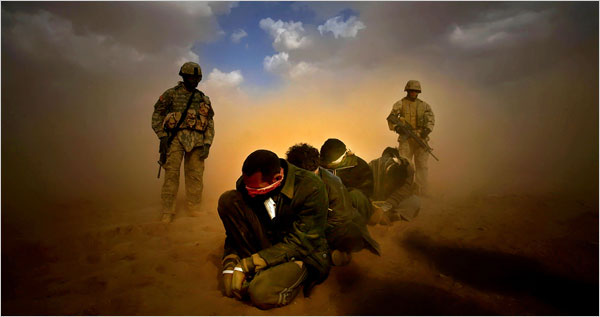
A lot of journalists and film makers are dragged to the art of documentary making because they want to reveal some kind of truth, and in revealing this truth they always face certain risks. At times this truth can be harmless and simply informative, the biggest risk being sticking to schedule; but many times documentary makers stumble upon topics that are dangerous for their lives, or lives of the people within it, in one way or another.
Documentary makers’ agenda usually makes them so determined that they will stop at nothing to complete their work and find the answers they were seeking, even if it means putting themselves at a risk, because for them revealing the truth is a priority – despite whether it leads to them being trapped on the enemy’s side during war where filming is generally prohibited, or filming with and around dangerous animals, or simply digging deep into a government conspiracy that can upset a lot of powerful people, causing unnamable consequences.
Determined artists always deserve a lot of respect, and so let’s celebrate their bravery and victory over the massive obstacles by appreciating 10 of the best dangerous documentaries.
10. Who Killed the Electric Car? (Chris Paine, 2006)
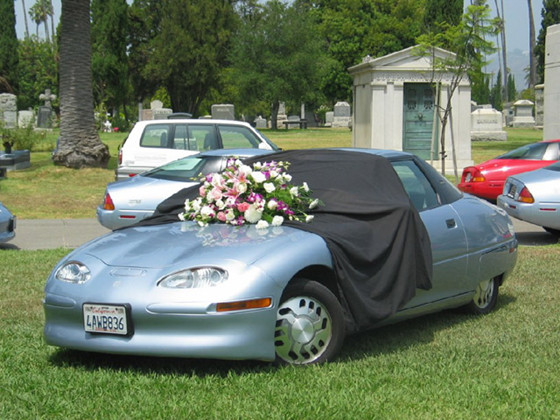
The theme of corruption is always bound to stir up some controversy, and that is why it is essential that in Who Killed the Electric Car?, director Chris Paine had all of his facts checked and even double-checked in order to tell a truth that can not be denied, even by the biggest and most powerful.
As the title suggests, in the documentary Paine deals with the issue of the electric car that is still being made and perfected today; however what one may not know and what Paine horrifyingly shows us is that that car already existed, perhaps not in its most perfect form but it did its job.
Created by General Motors, the revolutionary and environmentally friendly electric car promised to raise the company to a spotlight, but unfortunately they chose to succumb to the greater force of the government, other car manufacturers and oil corporations that led to the destruction of the car that could save the Earth, revealing once again the power and corruption of such big corporations.
9. Blackfish (Gabriela Cowperthwaite, 2013)
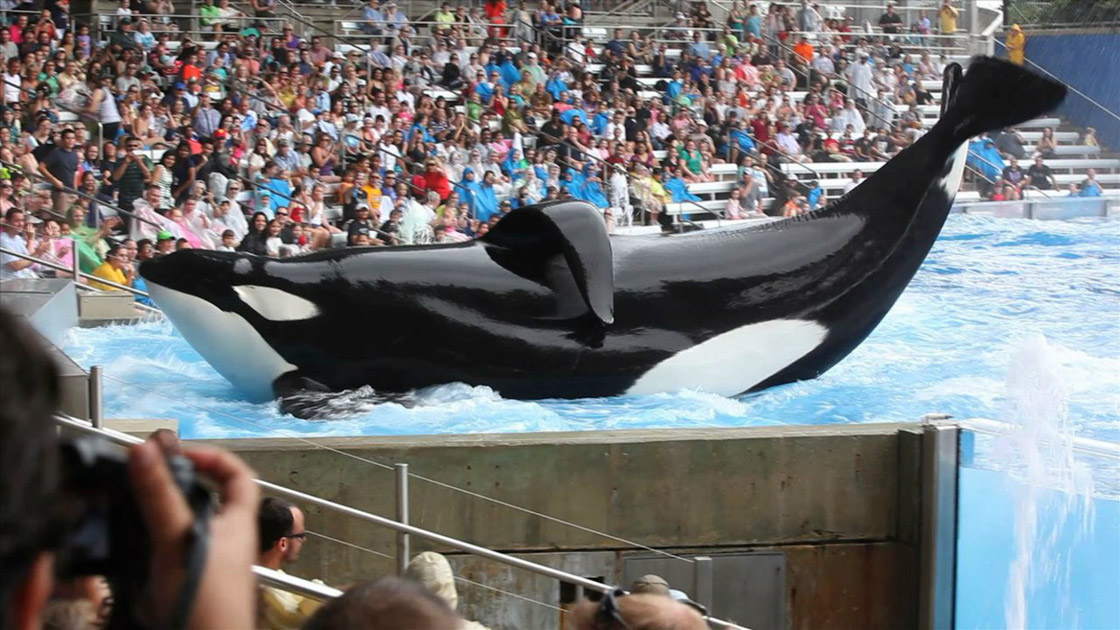
Several powerful documentaries have been made aimed at animal rights and Cowperthwaite’s Blackfish is definitely one of them. Her target is one of the biggest establishments – Sea World – and Cowperthwaite openly, despite the risk, addresses the abuse of one of the biggest and most beautiful animals they hold imprisoned – the orca.
By making us aware of the intelligent capacity of the animal, she leaves us no choice but to agree with the fact that keeping them under such awful conditions, out of their natural habitat for the simple entertainment of families (and the millions of dollars per year) is simply a disgrace upon the human kind.
As the violence unravels before our eyes and the harsh reality of their captivity and killings are brought forward it becomes no wonder that so many protests were held after the release of the documentary putting Cowperthwaite under the potential risk of being crashed by the power of Sea World; but luckily Sea World was seen to submit promising change despite never agreeing to free the orcas.
8. Taxi to the Dark Side (Alex Gibney, 2008)
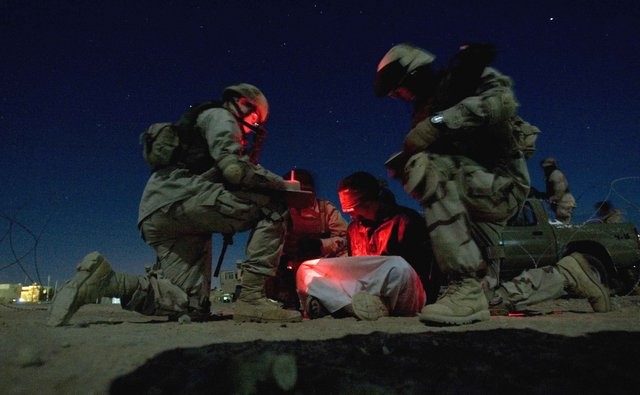
Taxi to the Dark Side began with the events of 2002 when an innocent Afghan Taxi driver, Daliwar, was accused of being a terrorist in relation to a recent attack and was captured and take to the American prison in Bagram where he was tortured in the most violent ways leading to his death.
It was later discovered that the informant was the said terrorist himself and Daliwar had unjustly paid for a crime he did not commit. This began the investigation into the torture scandals of “working the dark side”, that didn’t see any officers or officials charged as guilty.
Gibney uses this as the basis for his deep investigation into Bush’s administration and their unspoken policy of brutal torture of any terrorist suspect, leading his research deeper to the never ending controversy of Guantánamo Bay; he interviews the soldiers themselves who had been instructed to carry out the violent procedures while their superiors played the ignorant innocent game once accused of the orders as seen on testimonial footage.
Making something that puts the government in a bad light, especially as bad as this one is always risky; however Gibney unapologetically hangs the issue out in the open despite the unpatriotic view.
7. The Act of Killing (Joshua Oppenheimer, 2013)
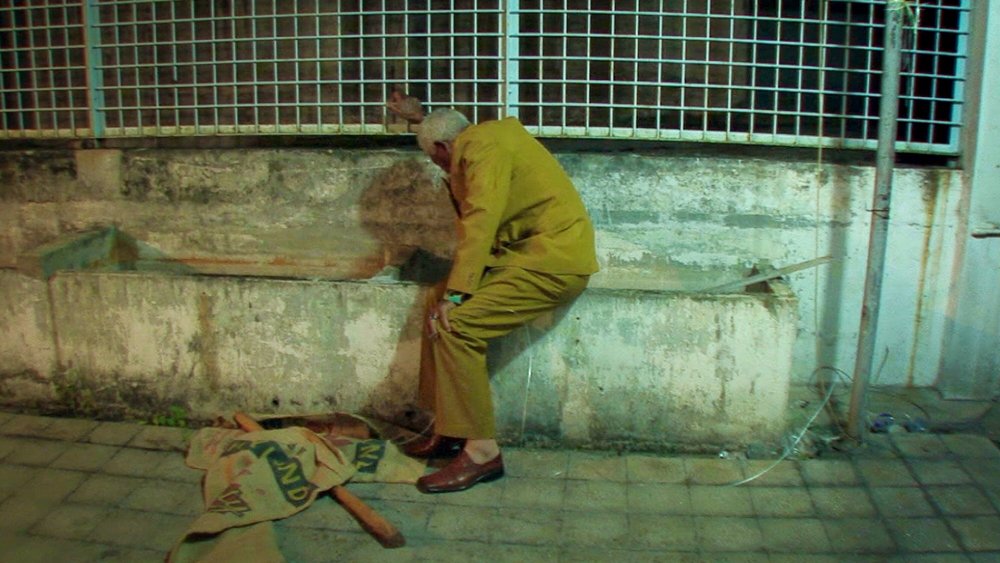
In this chilling documentary Joshua Oppenheimer brings himself and the viewers face to face with some of the most cold blooded and notorious Indonesian mass murderers that gained a terrifying reputation during the anti-Communist era in 1965-1966 that took away more than a million innocent lives.
In The Act of Killing, Oppenheimer interviews the likes of Anwar Congo and Haji Anif who were currently creating a biographical movie, discussing their lives during the purge and feeling like celebrities the men proudly not only tell but demonstrate their killing talents that had once been their job. Believing they can no longer be prosecuted for the long past actions the men hold back on nothing – whether it was murder, torture or rape – creating a hauntingly honest effect.
Despite the change of government regime since those times it is terrifying to see that these murderers still have everyone under their sleeve as you see civilians, young and old, still giving a terrified look as well as the biggest smile when the men are around.
The sincerity and casual manner of the terrifying individuals create one of the most terrifying and violent documentary of all times, despite the lack of violence on screen; and as Congo watches the finished version of his cinematic debut, the horrifying truth of his past and present seems to finally put a big mark on him.
6. Cartel Land (Matthew Heineman, 2015)
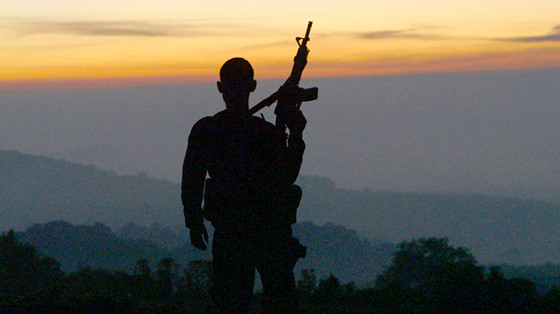
The drug war is a common theme in both documentaries and fiction and Heineman chooses it to show us two groups that are trying to stop the harm. In a parallel manner, he follows the Autodefensas, a group of citizen volunteers led by Dr. Jose Manuel Mireles who decided to take it into their own hands to stop the violence and fear that the cartels have put over the people of Michoacan, Mexico; but as their fight progresses, Mireles comes face to face with the struggle of preventing his organisation from turning into what they are against – the violent ways of the cartel itself.
Amidst the chaos of the struggle, Heineman interweaves his interview and footage of another group of fighters not far away, on the Arizona border, known as the Arizona Border Recon led by veterinary Tim Foley who have been labelled as extremists as they patrol the border to stop Mexican immigration and try to keep the cartel business within Mexican borders.
The documentary leaves it to us to assess the goodness of the actions of the two groups as Heineman and his crew are constantly put under the danger of bullets on both sides of the border.